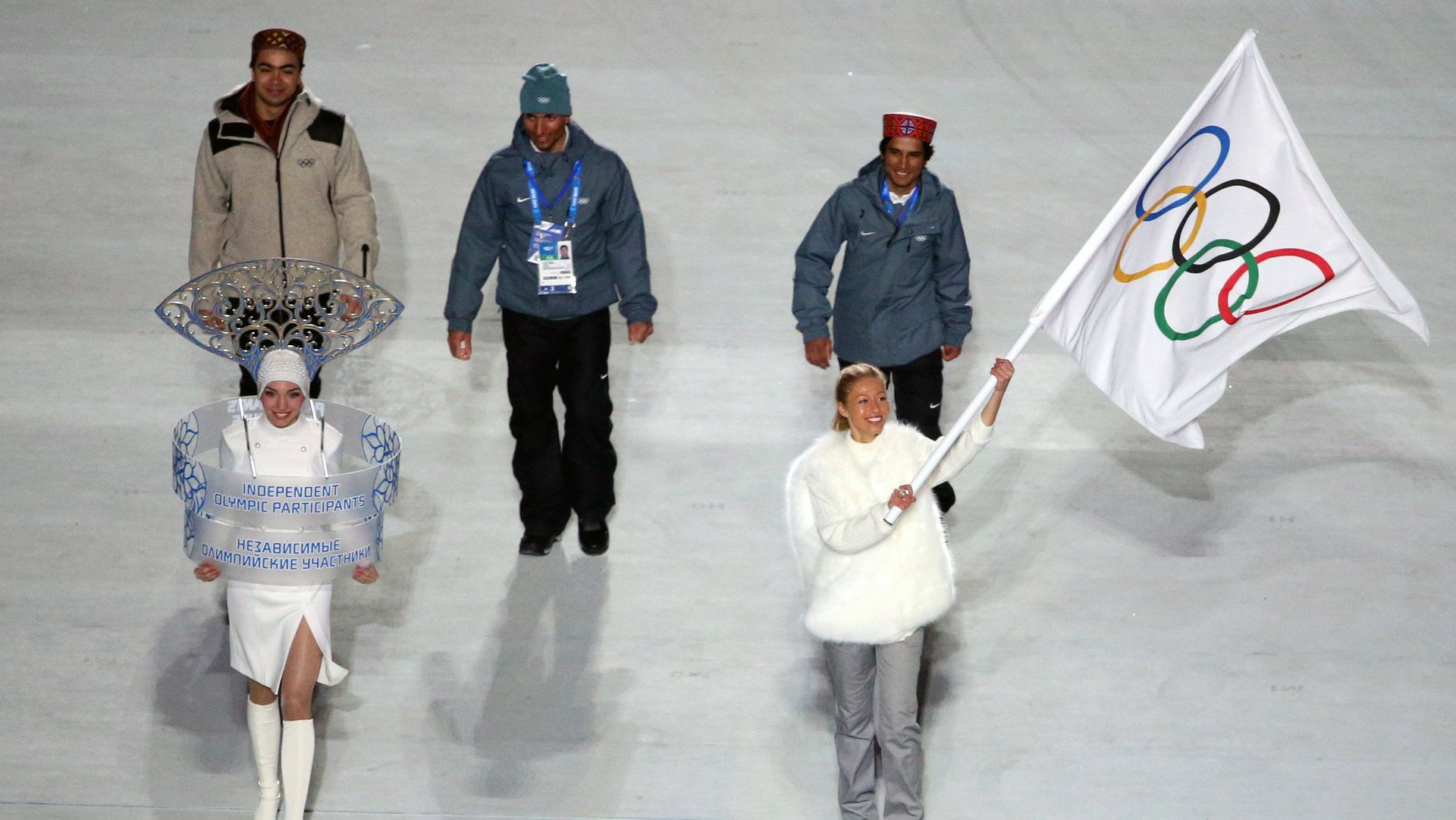For the first time, refugee athletes will be allowed to compete in the Olympics
Athletes who fled their country of origin but had yet to get citizenship elsewhere were previously prevented from competing in the Olympics. But not next year.


Athletes who fled their country of origin but had yet to get citizenship elsewhere were previously prevented from competing in the Olympics. But not next year.
At the 2016 Olympic Games in Rio de Janeiro, the International Olympic Committee (IOC) president announced that refugee athletes will—for the first time—be allowed to compete. ”Having no national team to belong to, having no flag to march behind, having no national anthem to be played, these refugee athletes will be welcomed to the Olympic Games with the Olympic flag and with the Olympic anthem,” Thomas Bach told the UN General Assembly (pdf).
The IOC has created a $2-million fund “to bring hope through sport to refugees” and has called on the member states to help identify high-level refugee athletes that could compete in the games. The refugee athletes will be allowed to live in the Olympic Village and compete with the other 11,000 athletes from 206 National Olympic Committees.
The announcement came as Europe struggles to cope with the refugee crisis, where more than 650,000 migrants are estimated to have arrived so far this year.
This isn’t the first time athletes have competed under the Olympic flag and anthem. Yugoslavia was prevented from participating in the Olympic Games in 1992 as the country was under UN sanctions, but individual Yugoslav athletes could take part as independents.
During the 2012 London Olympics, one athlete from South Sudan had to compete as an independent as the National Olympic Committee for South Sudan was not yet established. Most recently, three Indian athletes had to compete as independents at the 2014 Winter Olympics as the Indian Olympic Association had been suspended from the IOC.
During his speech, Bach congratulated member states for passing a resolution entitled “Building a peaceful and better world through sport and the Olympic ideal,” also known as the Olympic Truce. Out of the 193 UN member states, 180 have agreed to halt conflicts from seven days before the Olympic Games opening ceremony until seven days after the Paralympic Games closing ceremony.
The UN General Assembly has adopted this resolution every two years since 1993 to ensure the safe passage and participation of athletes at the games, but some countries have failed to observe the truce and continued fighting,